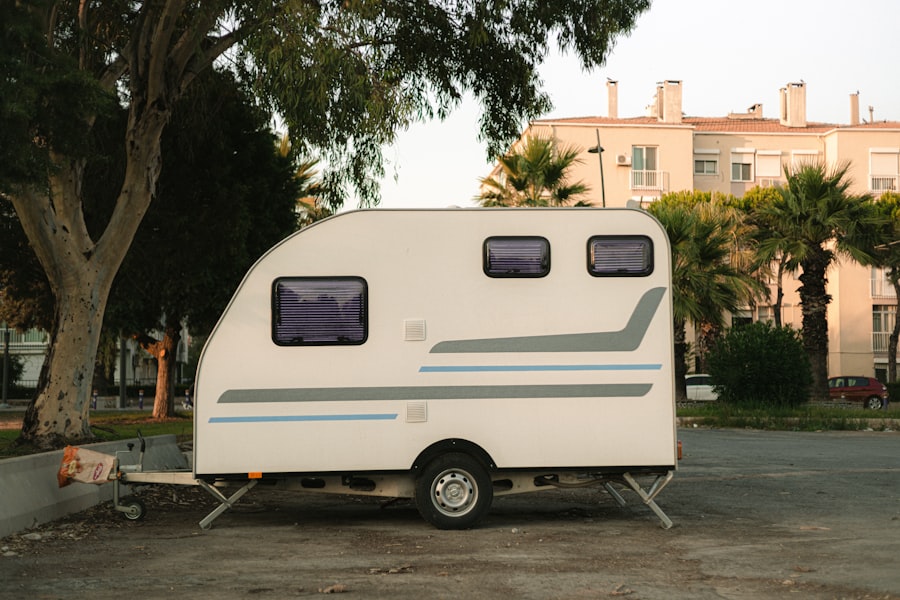Mobile home lot rent refers to the fee that residents pay for the right to occupy a specific plot of land within a mobile home park. Unlike traditional homeownership, where individuals own both the dwelling and the land it sits on, mobile home residents typically own their homes but lease the land from a park owner or management company. This arrangement can be appealing for many, as it often requires a lower initial investment compared to purchasing a traditional home.
However, it also means that residents must navigate the complexities of leasing land, which can include various fees and regulations. The cost of mobile home lot rent can vary significantly based on several factors, including location, amenities offered by the park, and the overall demand for housing in the area. Residents may find that lot rents can range from a few hundred to over a thousand dollars per month, depending on these variables.
Additionally, mobile home lot rent is typically paid monthly and may be subject to annual increases, which can impact long-term budgeting for residents. Understanding the nuances of mobile home lot rent is crucial for anyone considering this type of housing arrangement.
Key Takeaways
- Mobile home lot rent is the fee paid for leasing the land where a mobile home is placed.
- Rent prices are influenced by location, amenities, and park management policies.
- Lease agreements outline terms, rent amount, and tenant responsibilities.
- Mobile home lot rent differs from traditional home rent as it covers land use, not the home itself.
- Residents have legal rights and can access resources to find affordable lot rent and negotiate terms.
Factors that Influence Mobile Home Lot Rent
Several factors play a critical role in determining the amount of mobile home lot rent that residents will pay. One of the most significant influences is location. Mobile home parks situated in urban areas or regions with high demand for housing often command higher lot rents compared to those in rural or less populated areas.
Proximity to essential services such as schools, shopping centers, and healthcare facilities can also drive up demand and, consequently, lot rent prices. Another important factor is the amenities provided by the mobile home park. Parks that offer additional features such as swimming pools, playgrounds, community centers, or organized social activities may charge higher lot rents due to the added value these amenities provide to residents.
Additionally, the overall condition and maintenance of the park can influence rent prices; well-maintained parks with attractive landscaping and clean facilities are likely to attract more residents and justify higher rents. Furthermore, local economic conditions, including job availability and income levels in the area, can also affect how much residents are willing to pay for lot rent.
Understanding the Lease Agreement

The lease agreement for a mobile home lot is a crucial document that outlines the terms and conditions under which a resident occupies the land. It typically includes details such as the duration of the lease, payment terms, rules and regulations governing the park, and responsibilities of both the tenant and the landlord. Understanding this agreement is essential for residents to ensure they are aware of their rights and obligations.
One key aspect of the lease agreement is the payment structure. Residents should pay close attention to how much they are required to pay each month and whether there are any additional fees, such as utilities or maintenance costs. The lease may also specify how often rent increases can occur and under what circumstances.
Additionally, it is important for residents to understand any rules regarding modifications to their mobile homes or restrictions on subletting or selling their homes within the park. By thoroughly reviewing and understanding the lease agreement, residents can avoid potential disputes and ensure a smoother living experience.
Differences between Mobile Home Lot Rent and Traditional Home Rent
| Aspect | Mobile Home Lot Rent | Traditional Home Rent |
|---|---|---|
| Average Monthly Rent | 300 – 600 | 1000 – 2500 |
| Included Utilities | Sometimes water and trash | Often water, trash, gas, and electricity |
| Lease Terms | Month-to-month or yearly | Typically yearly or multi-year |
| Maintenance Responsibility | Tenant responsible for home maintenance | Landlord responsible for most maintenance |
| Space Size | Smaller lot, usually 50×100 feet | Varies widely, often larger yards |
| Location | Often in designated mobile home parks | Urban, suburban, or rural neighborhoods |
| Additional Fees | Possible park fees and amenities fees | Usually included in rent or separate utilities |
| Flexibility | More flexible, easier to move | Less flexible, longer commitments |
Mobile home lot rent differs significantly from traditional home rent in several key ways. One of the most notable differences is ownership; while traditional renters typically lease both the dwelling and the land it occupies from a landlord, mobile home residents own their homes but lease only the land. This distinction can lead to different financial responsibilities; for instance, mobile home owners are responsible for maintaining their homes, while traditional renters may rely on landlords for repairs and upkeep.
Another difference lies in the stability of housing costs. Traditional rental agreements often have fixed terms, with rent prices set for a specific duration before renewal negotiations take place. In contrast, mobile home lot rents may be subject to more frequent increases, sometimes annually or even biannually, depending on local regulations and market conditions.
This variability can make budgeting more challenging for mobile home residents. Additionally, mobile home parks may have specific rules regarding community living that differ from those found in traditional rental properties, such as restrictions on pets or noise levels.
How to Negotiate Mobile Home Lot Rent
Negotiating mobile home lot rent can be a daunting task for many residents, but it is often possible to reach a more favorable agreement with some preparation and strategy. One effective approach is to conduct thorough research on comparable lot rents in nearby parks or communities. By gathering data on what other residents are paying for similar amenities and locations, individuals can present a compelling case when discussing their own rent with park management.
Another important aspect of negotiation is timing. Engaging in discussions about rent adjustments during lease renewal periods or when there are changes in park management can provide leverage for residents seeking lower rates. It is also beneficial to build a positive relationship with park management; open communication can foster goodwill and make negotiations smoother.
Residents should be prepared to articulate their reasons for requesting a lower rent—whether it’s based on financial hardship or comparisons with other parks—and be willing to compromise if necessary.
Tips for Budgeting and Managing Mobile Home Lot Rent

Effective budgeting is essential for managing mobile home lot rent alongside other living expenses. One practical tip is to create a detailed monthly budget that accounts for all sources of income and expenses, including utilities, groceries, insurance, and transportation costs. By having a clear picture of their financial situation, residents can better allocate funds toward their lot rent while ensuring they meet other financial obligations.
Additionally, setting aside an emergency fund specifically for unexpected expenses related to lot rent can provide peace of mind. This fund can help cover sudden increases in rent or unforeseen costs associated with maintaining the mobile home itself. Residents should also consider exploring options for reducing other expenses; for example, cutting back on discretionary spending or finding ways to save on utilities can free up more funds for lot rent payments.
Utilizing budgeting apps or financial planning tools can further assist in tracking expenses and managing finances effectively.
Legal Rights and Protections for Mobile Home Residents
Mobile home residents have specific legal rights and protections that vary by state but generally aim to safeguard their interests as tenants of leased land. Many states have enacted laws that govern mobile home parks, addressing issues such as eviction procedures, rent control, and maintenance responsibilities. Understanding these rights is crucial for residents to ensure they are treated fairly by park management.
For instance, some states require landlords to provide written notice before increasing lot rent or terminating a lease agreement. Additionally, laws may stipulate that landlords must maintain common areas and provide essential services such as water and electricity. Residents facing disputes with park management should familiarize themselves with local tenant rights organizations or legal aid services that specialize in housing issues; these resources can offer guidance on how to navigate conflicts effectively.
Resources for Finding Affordable Mobile Home Lot Rent Options
Finding affordable mobile home lot rent options requires diligent research and exploration of various resources available to prospective residents. Online platforms such as real estate websites often list available mobile home parks along with their respective lot rents and amenities. Websites dedicated specifically to mobile homes can provide valuable insights into local parks and community reviews from current residents.
Local housing authorities or community organizations may also offer assistance in locating affordable mobile home parks or provide information about financial assistance programs available to low-income families. Networking within local communities or joining online forums dedicated to mobile home living can yield recommendations from fellow residents who have successfully found affordable options. Additionally, attending local housing fairs or expos can connect individuals with park owners and management companies directly, allowing them to inquire about available lots and negotiate terms in person.
By leveraging these resources and being proactive in their search, individuals seeking affordable mobile home lot rent options can increase their chances of finding suitable housing that meets their financial needs while enjoying the benefits of mobile home living.



